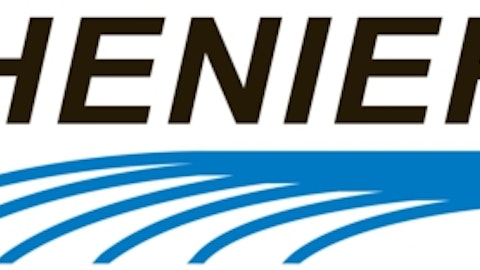It goes without saying that Buffett is one of the most imitated investors out there. What should never be forgotten though, is that Buffett is a long term buyer. He’s not in it for a quick flip. So, buying into one of his picks is not necessarily a short term slam-dunk. He’s willing to wait years. Others can lack the conviction to hold through temporary losses or even long-term periods of inaction.
If your perspective isn’t as long term as Warren, you may be disappointed. If you go in eyes wide open with similar objectives and discipline, chances are good you’ll do well.

Buffett’s most recent addition in the energy sector is a case in point. Berkshire Hathaway Inc. (NYSE:BRK.A) reported just shy of 17.8 million shares of Suncor Energy Inc. (USA) (NYSE:SU) purchased in the second quarter of 2013 for about $524 million dollars . All in all, the purchase averaged out to $29.49 per share. Current buyers are paying roughly $34 a share; a 15% higher price. Buffett bought on the dip, and you’re not getting his deal unless you take his risk.
Is Suncor Energy Inc. (USA) (NYSE:SU) still a steal?
The price you’d pay for Suncor Energy Inc. (USA) (NYSE:SU) right now is a price that Buffett wasn’t buying at. He wasn’t buying in Q1, when prices were around current levels. Then he dropped half-a-billion on shares in the space of a couple months. It’s possible that he saw something on the horizon regarding oil prices. Since Suncor Energy Inc. (USA) (NYSE:SU) trimmed 15% of its market cap in that time frame, it’s more likely that value—Buffett’s favorite catalyst—drove the decision. He couldn’t tell you more clearly what he thinks Suncor Energy Inc. (USA) (NYSE:SU) is worth.
Suncor’s a half-billion dollar bet on continually higher oil prices.
It’s the purest bet on Canadian oil sands available to Buffett. Suncor Energy Inc. (USA) (NYSE:SU) operates the oldest bitumen mine in Canada’s Athabasca oil sands region. Bitumen is a form of heavy oil that’s so enriched in larger hydrocarbons that it’s naturally a tar. The bitumen is surface mined in most present operations, and these operations dominate Suncor’s current production.
Once mined, the bitumen is processed to thin it, and shipped like any other heavy oil for refinement. It’s very energy intensive, and Suncor burns about $35 to produce a single barrel of Syncrude. That makes high oil prices imperative for good margins. Buffett’s apparently a believer that oil prices remain higher in the future.
Despite that, it’s not a particularly risky bet. That’s because Suncor fits the Buffett mold in most every respect. Suncor’s the largest player in the Athabasca Oil Sands and has a dominant industry position. Its reserve base is huge: 3.5 billion barrels of proved reserves with over 23 billion of contingent resources . Suncor averages about 300 Mbpd (thousand barrels per day) of syncrude production. At this rate, proved bitumen reserves would hold out 29 years . Fold that in with Suncor’s superior experience in the space, and you have a pretty decent moat in an area of profound potential.
That leadership position is accentuated by a solid balance sheet. With only $10.5 billion in long term debt, $4.5B in cash and a market cap over $50 billion, this is a conservatively leveraged company. It’s 20% debt to equity ratio is considerably less than peers like Apache and Anadarko, and far less than smaller independents like Chesapeake. Operating profit runs about 8 times interest expense , and Suncor’s been profitable ten of the last ten years.
Suncor’s cheap relative to peers.
With the larger Indies, the peer group becomes smaller. This is middle ground between the true majors and independents.
Good comps are probably limited to Apache, Anadarko, and Occidental. Based on proved reserves, Suncor seems the best deal of the four. Enterprise Value (EV) to reserve ratios tell you quite quickly what a barrel of reserves cost. Occidental and Anadarko weigh in over $20 per BOE (Barrel of oil equivalent). Apache and Suncor are much more affordable: Suncor reserves cost buyers $16.65 per BOE, while Apache’s gas-rich reserves cost $16.52 per BOE.

Suncor’s especially cheap given the remarkably high oil content of its reserves. By buying on the dip, Buffett got his oil-rich reserves at an even better price point, getting barrels closer to $16. An obvious strategy would be to keep Buffett’s value in mind as a future buying point, sticking with his value discipline.
Are there other opportunities out there?
You could always find a different way to play the same game. Suncor is almost a pure play on the Canadian oil sands. Syncrude is an even purer play. Syncrude operates the largest surface bitumen mine in the Athabasca. It’s a consortium of Independents and Canadian Oil Sands Partnership #1. The partnership trades as Canadian Oil Sands Limited on the OTC market. As an LLC, it’s a pass-through entity that generates income for investors. It currently pays a 7% yield . All the typical caveats regarding LLCs, MLPs and tax issues apply.
Devon Energy Corp (NYSE:DVN) is another less obvious way to play in the oil sands. The bulk of Devon Energy Corp (NYSE:DVN)’s reserves are natural gas in the Barnett shale. Poor natural gas prices forced Devon Energy Corp (NYSE:DVN) to expand its footprint in a quest for liquids. Devon Energy Corp (NYSE:DVN)’s Jackfish oil sands projects produce a third of its oil production. Its larger Pike project is also currently in the permitting phase.
Devon Energy Corp (NYSE:DVN)’s dirt cheap with an EV/BOE of $10.50 , largely due to its heavy proportion of natural gas reserves. With natural gas prices firming, a prolonged rise in oil prices would benefit Devon Energy Corp (NYSE:DVN) significantly as margins expanded on its prolific but costly Jackfish operations.
Should you follow Buffett in?
Buffett gave you his opinion. He wasn’t a buyer just weeks earlier at these price levels. With affairs in Syria heating up, oil prices have been spiking making it unlikely that Suncor will be available at his prices in the near future. If you want his price, you may need his patience. But his is a carefully considered long term bet. Watching with discipline for another opportunity might be the best course of action. He’s a buyer of $15 barrels. Look for his price and chances are you’ll do well.
The article Should You Follow Buffett Into This Energy Play? originally appeared on Fool.com and is written by Peter Horn.
Peter Horn holds shares of Berkshire-Hathaway. The Motley Fool owns shares of Devon Energy.
Copyright © 1995 – 2013 The Motley Fool, LLC. All rights reserved. The Motley Fool has a disclosure policy.




